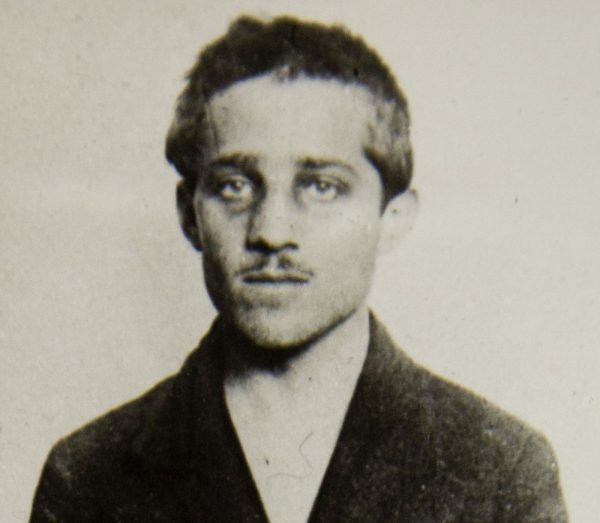Death Of The West: What Caused World War I?
The collapse of Western Civilization has taken a long time. Some observers saw it beginning with the Greek and Roman empires, which were outward manifestations of the inner goodness that motivated prior golden ages. Others saw it in the fall of the monarchy in France in 1789. But for all, World War I was a clear signal of its inevitability.
In that fratricidal and suicidal war, Europe finally owned up to the events of 1789 and the following Napoleonic Wars, which unsettled the balance of power in Europe. Those, and the Franco-Prussian War, resulting in a displacement of the aristocracy and their replacement with modern society: democracy, commerce as a means to itself, bureaucracy and independent militaries. As the British Library writes:
Globalization
Characteristic of the pre-1914 decades was what we would now call globalization. Trade may have risen from one thirtieth to one third of world production between 1800 and 1913; between 1855 and 1914 investment flows grew 20 times. Europe accounted for nearly two thirds of global trade and even more of global investment, and from the 1890s Europe’s major currencies were fixed in value in relation to each other under the international gold standard. Hundreds of thousands of foreign-born labourers worked in the heavy industries of French Lorraine and Germany’s Ruhr. The British writer Norman Angell in his 1909 best-seller, Europe’s Optical Illusion, maintained that war between advanced modern economies was now irrational.[1] Yet British naval planners saw economic interdependence as making Germany more vulnerable, and the German General Staff considered war remained a viable option, at least if victory came quickly.
Democratization
A second 19th-century characteristic was democratization. By 1914 all the European Powers had elected lower houses of parliament, and a majority of the adult male population was enfranchised. The press was relatively free, and citizens could form parties and pressure groups. Nonetheless, in Austria-Hungary, Germany, and Russia ministers answered to monarchs rather than to a parliamentary majority, and the military chiefs were not subordinate to civilian statesmen. Moreover, as international tension mounted, public opinion polarized, more moderate and progressive tendencies being offset by nationalism and militarism. Europe’s socialist parties opposed wars of conquest and aggression but were willing to endorse a war fought for just cause and in self-defence, which in 1914 all the governments would claim to be fighting.
Military revolutions
The 19th century had also witnessed a succession of military revolutions. At sea, steel had superseded wooden hulls and steam had superseded sail. HMS Dreadnought, launched by Britain in 1906 with turbine engines and 10 12-inch guns, made all existing battleships obsolete. On land, Prussia’s combination of universal liability to conscription, forward strategic planning by a General Staff, and railway-borne mobilization helped win the wars of German unification, and was widely emulated. Breech-loading cannon with rifled steel barrels replaced smooth-bore muzzle-loaders, and infantry rifles replaced muskets. Smokeless high explosive replaced powder in bullets and shells, and the modern field gun fired up to 20 rounds per minute. Yet although on balance these developments favoured defenders over attackers, military planners concluded from the 1904-05 Russo-Japanese War that offensive tactics could still prevail, albeit at much higher cost than before.
This set up the conditions for World War One: the first modern states in Europe, forming “entangling alliances” with one another to counter the rest, having replaced the congenial and limited political interaction of the aristocrats. This was not an aristocratic war; it was an anti-aristocratic, or democratic, one.
The result of this was that national identity was suppressed, as aristocracy was suppressed, so that a series of proto-EU superstates could feel they had the possibility of defense against any rising democratic powers, like the armies of Napoleon marching across Europe, laying waste to all they encountered.
That diversity, or suppression of nationalism, provided the raw material for the touchstone event that provided a political pretext for starting war:
However, later that day a Serbian nationalist named Gavrilo Princip assassinated him and his wife while they were in Sarajevo, Bosnia which was part of Austria-Hungary. This was in protest to Austria-Hungary having control of this region. Serbia wanted to take over Bosnia and Herzegovina.
For this reason, it makes sense to see World War One as the result of the suppression of aristocracy and nationalism, and its replacement with the classless, mixed-ethnic nation-state brought about by democracy and its primal assumption, equality.
World War One created an unstable balance of power that ended with Bolsheviks seizing Russia, at which point Europe was further destabilized: there was the old order, the new order lite, and the new order as defined by Marx. Since World War One failed to address these underlying issues, the Second World War exploded a generation later with more advanced combat and higher stakes.
The Enlightenmentâ„¢ provided the final stage of European collapse: where the pre-Greek societies had left a golden age when they abandoned forward logic in favor of rationalism, rationalism became applied in a human-only context with the French Revolution, and as this became bureaucratic, it flowered into flavors of liberalism in the early twentieth century.
The result was constant internal warfare, exhausting European nations and wasting the best of their blood on ideological pursuits, all of which ended in resolutions to go even further into the death spiral of egalitarian ideology. Mourn the dead, but honor them by not repeating the mistakes of the past.
Tags: democracy, egalitarianism, europe, leftism, nationalism, WWI










